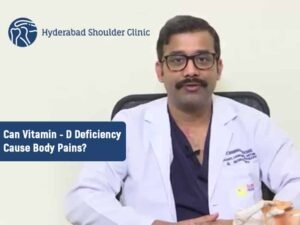Recurrent anterior shoulder dislocation or subluxation refers to the repeated episodes of the shoulder joint dislocating or partially dislocating (subluxation) in the forward direction. This condition often occurs due to an initial injury that may cause damage to the shoulder’s stabilizing structures, such as ligaments and the labrum. Patients typically experience symptoms like pain, instability, and a feeling that the shoulder may “give way.” Treatment options may include physical therapy for strengthening and stabilization, as well as surgical interventions in severe cases.
Recurrent anterior shoulder dislocation or subluxation refers to the repeated and often distressing episodes in which the shoulder joint slips out of its normal position, predominantly moving forward. This condition is frequently triggered by an initial traumatic event, such as a fall or an intense sporting accident, which can wreak havoc on the delicate stabilizing components of the shoulder – tears in ligaments, stretching of soft tissues, and damage to the labrum, the cartilage rim that secures the joint.
Recurrent anterior shoulder dislocation or subluxation: Causes

Those who experience this issue often describe intense, debilitating pain that shoots through their shoulder, coupled with a nagging sense of instability, as if their joint is on the verge of giving way at any moment. Factors contributing to this recurring plight include:
- Initial Trauma: A forceful impact can fracture the fragile equilibrium of the shoulder, setting off a cascade of instability that is difficult to reverse.
- Genetic Predisposition: An inherited tendency toward hyperlaxity can leave individuals with loose, overly flexible joints that lack the firmness required for stability.
- Labral Tears: Damage to the labrum can create a critical gap in the shoulder’s support system, making it more susceptible to future dislocation.
- Muscle and Ligament Weakness: When the rotator cuff muscles fail to maintain their grasp, or the ligaments lose their strength and resilience, the shoulder becomes a ticking time bomb of instability.
- Overhead Activity: Engaging in sports or activities that demand repetitive overhead motions—think swimming, baseball, or gymnastics—places immense strain on the shoulder, amplifying the risk of dislocation.
- History of Dislocations: Each new dislocation often compounds the damage, eroding the integrity of the surrounding structures and paving the way for future episodes.
- Bony Defects: Structural anomalies, such as a shallow glenoid cavity, can hinder the shoulder’s ability to stay anchored, further exacerbating instability.
- Nerve Injuries: Damage to the nerves that govern shoulder movement can lead to muscle weakness, further contributing to the joint’s susceptibility to dislocation.
Grasping the root causes of recurrent anterior shoulder dislocation is crucial in crafting an effective treatment strategy that restores stability and alleviates discomfort.
Recurrent anterior shoulder dislocation or subluxation: Best Treatment

The best treatment for recurrent anterior shoulder dislocation or subluxation generally depends on the severity of the condition, the patient’s age, activity level, and overall shoulder stability. Here are the most effective treatment approaches:
- Initial Conservative Management: Giving the shoulder time to heal and avoiding activities that may provoke dislocation.
- Physical Therapy: Engaging in a tailored rehabilitation program to strengthen the rotator cuff muscles and improve stability. This may include exercises that focus on shoulder mobility, coordination, and strength.
- Bracing: Wearing a brace can provide external support during the rehabilitation process, helping to reduce the risk of reinjury during physical activities.
- Medications: Nonsteroidal anti-inflammatory drugs (NSAIDs) can help relieve pain and reduce inflammation following a dislocation.
- Injections: In some cases, injecting corticosteroids into the shoulder joint can help alleviate inflammation and pain, allowing for more effective rehabilitation.
- Arthroscopic Stabilization: For patients with recurrent dislocations who do not respond to conservative treatments, minimally invasive arthroscopic surgery may be indicated. This procedure may involve repairing a torn labrum or tightening loose ligaments to enhance stability.
- Open Surgery: In some cases, more extensive surgical intervention may be necessary, especially if there are significant bony defects or recurrent dislocation despite arthroscopic repair.
- Stay Active PostRehabilitation: A carefully structured plan for returning to sports or activities can help ensure that the shoulder remains stable while slowly reintroducing more demanding movements.
- Education and Awareness: Learning proper techniques for activities and sports, as well as being aware of the signs of instability, can help prevent future issues.
Each treatment plan should be individualized based on the patient’s unique circumstances and goals. It’s essential to work closely with a healthcare professional specializing in shoulder injuries to determine the most appropriate course of action.
A word from Dr.Chandra Sekhar B, from Hyderabad Shoulder Clinic about Recurrent anterior shoulder dislocation or subluxation causes and treatment
If you’re suffering from recurrent anterior shoulder dislocation or subluxation, consult us at Hyderabad Shoulder Clinic for expert advice. We provide a comprehensive assessment and develop a customized treatment plan tailored to your needs.
We advise you to be aware of any signs of instability or discomfort. If you feel your shoulder is slipping or becoming unstable, avoid certain movements and consult Dr.Chandra Sekhar B, promptly. Recovery and rehabilitation can take time, and progress may be gradual. Stay hopeful, trust the process, and celebrate small victories along the way. By taking these proactive steps, you can work towards managing your condition effectively and minimizing the risk of further dislocations. If you have questions or would like additional support, don’t hesitate to reach out to us at https://hyderabadshoulderclinic.com/ or contact us at +91 9959588389 or shoulderandsportsclinic@gmail.com.





